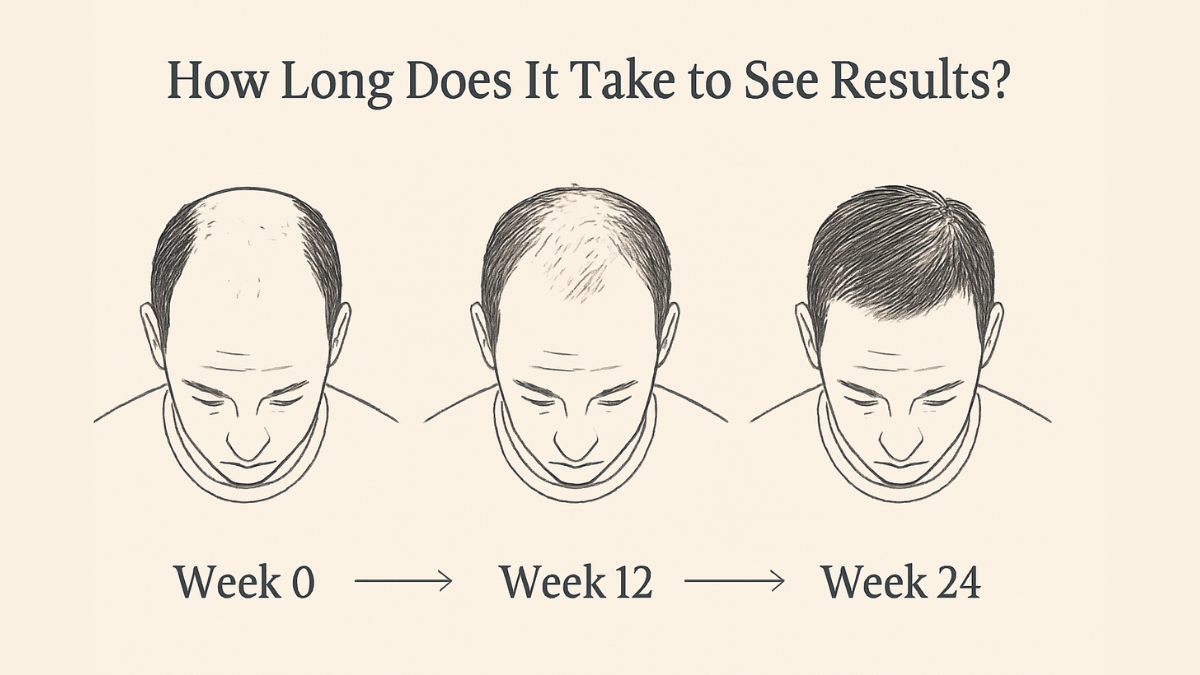When it comes to starting any hair fall treatment, one of the biggest concerns people have is about side effects. Understandably so, nobody wants to risk their health or scalp just to stop hair fall. With multi-science solutions like Traya, which combine dermatology, Ayurveda, and nutrition, the question becomes even more relevant. People often search for “side effects of Traya hair treatment reviews” to understand if the treatment is safe. Instead of relying only on scattered opinions, let’s break down the science behind Traya’s approach and what experts say about its safety profile.
Why Safety Matters in Hair Fall Treatments
Hair fall solutions are not just cosmetic products. They interact with your body — topically, internally, or both. Some of the common concerns include:
- Scalp irritation from topical treatments
- Hormonal imbalances due to strong actives
- Digestive discomfort from supplements
- Allergic reactions to herbal or chemical ingredients
A multi-science approach like Traya’s involves more than one type of treatment, so understanding each layer is important for safety evaluation.
Traya’s Three-Pronged Approach to Safety
Traya follows a personalised, doctor-monitored method. Let’s look at each component and its safety considerations.
1. Dermatology: External Treatments and Scalp Health
Dermatology in Traya’s plan focuses on topical applications to the scalp.
- Doctor-prescribed lotions target DHT (dihydrotestosterone) at the scalp level.
- These solutions are typically safe when used as directed.
- Some users may experience initial dryness or mild itching, which generally settles as the scalp adjusts.
- Since products are prescribed after a medical evaluation, individual sensitivities are accounted for.
The dermatological aspect of Traya is carefully monitored, reducing the risk of adverse reactions.
2. Ayurveda: Natural, But Still Requires Care
Ayurvedic formulations in Traya use herbs like Ashwagandha, Bhringraj, and Brahmi.
- These herbs are well-known for their calming, anti-inflammatory, and nourishing properties.
- Ayurveda focuses on balance, aiming to regulate internal heat and stress, both of which affect hair health.
- While natural, these herbs can cause mild digestive changes in some individuals, especially if they are new to herbal remedies.
- Traya doctors consider existing health conditions and sensitivities before prescribing Ayurvedic supplements.
It’s worth noting that natural does not always mean risk-free, but Traya’s personalised approach helps minimise such concerns.
3. Nutrition: Filling Gaps Safely
Traya includes nutritional supplements as part of its treatment plans.
- Deficiencies in iron, vitamin D, zinc, and biotin are common among people with chronic hair fall.
- Supplements help restore these levels and support hair regrowth.
- In rare cases, users may experience mild digestive discomfort during the initial weeks.
- Traya’s doctors recommend dosages based on individual needs, avoiding the risks of over-supplementation.
By tailoring supplementation, Traya ensures the nutritional aspect remains safe and beneficial.
Personalisation: A Built-in Safety Net
Traya’s commitment to personalisation plays a big role in managing safety.
- Every user begins with a detailed online health assessment.
- Based on lifestyle, medical history, and hair condition, doctors create a customised plan.
- Users receive ongoing support and consultations to monitor progress and address any concerns early.
This hands-on approach allows for timely adjustments if side effects or discomfort arise.
What Do Experts Say?
Medical experts generally agree that personalised, doctor-led treatments carry fewer risks than over-the-counter, generic solutions.
- Topical treatments: Safe when prescribed and used correctly. Mild scalp irritation is a common, short-term side effect.
- Ayurvedic herbs: Safe for most users, especially in controlled doses. Minor digestive adjustments are possible initially.
- Supplements: Safe when tailored to actual deficiencies. Excessive intake without monitoring can lead to issues, but this is avoidable with medical guidance.
Traya’s plan aligns with these best practices, keeping safety a priority alongside effectiveness.
Realistic View on Side Effects
No treatment is entirely free of side effects. However, the goal is to keep them minimal and manageable.
Common, mild side effects might include:
- Temporary scalp dryness or itching
- Initial digestive changes with herbal supplements
- Mild headaches if dosages are not well-suited (which Traya adjusts as needed)
These effects are usually short-lived and subside as the body adjusts to the treatment.
Severe side effects are rare, especially under doctor supervision. Users are encouraged to report any discomfort promptly for plan adjustments.
Why Some “Side Effects Reviews” Online Sound Alarming
It’s natural to find negative experiences in online reviews, often because:
- Some users skip the medical consultation and self-prescribe.
- Inconsistent use of products can cause irritation when restarted.
- Pre-existing health issues not disclosed at the time of consultation may lead to side effects.
Traya tries to minimise these risks by emphasising personalisation and regular follow-ups.
When evaluating the safety of a treatment, especially one as layered as Traya’s, it’s crucial to go beyond surface-level reviews and understand the science. Traya’s combination of dermatology, Ayurveda, and nutrition is designed with care, using doctor-led personalisation to reduce risks. While mild side effects can occur, they are generally manageable and temporary. Regular monitoring and adjustments further enhance safety. If you’re considering Traya, knowing that the approach is scientifically grounded and medically supervised provides confidence in its overall safety profile. As always, open communication with healthcare professionals ensures the smoothest experience during your hair regrowth journey.



![[CITYPNG.COM]White Google Play PlayStore Logo – 1500×1500](https://startupnews.fyi/wp-content/uploads/2025/08/CITYPNG.COMWhite-Google-Play-PlayStore-Logo-1500x1500-1-630x630.png)